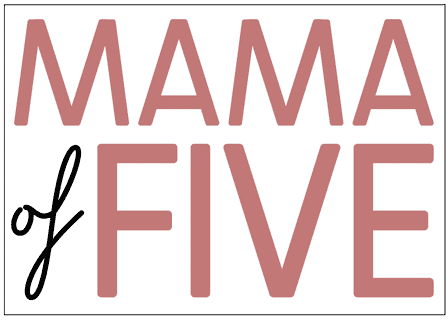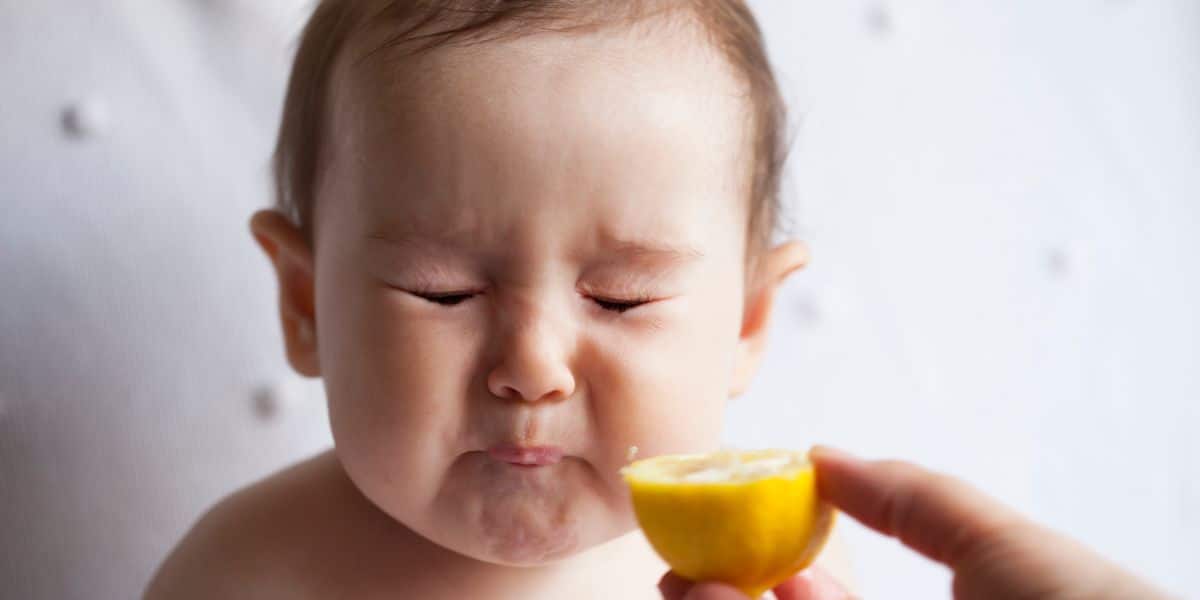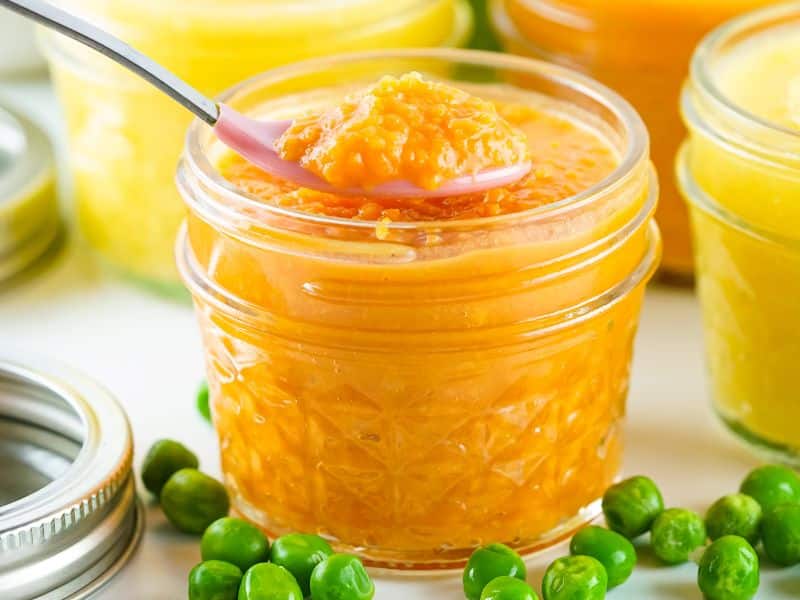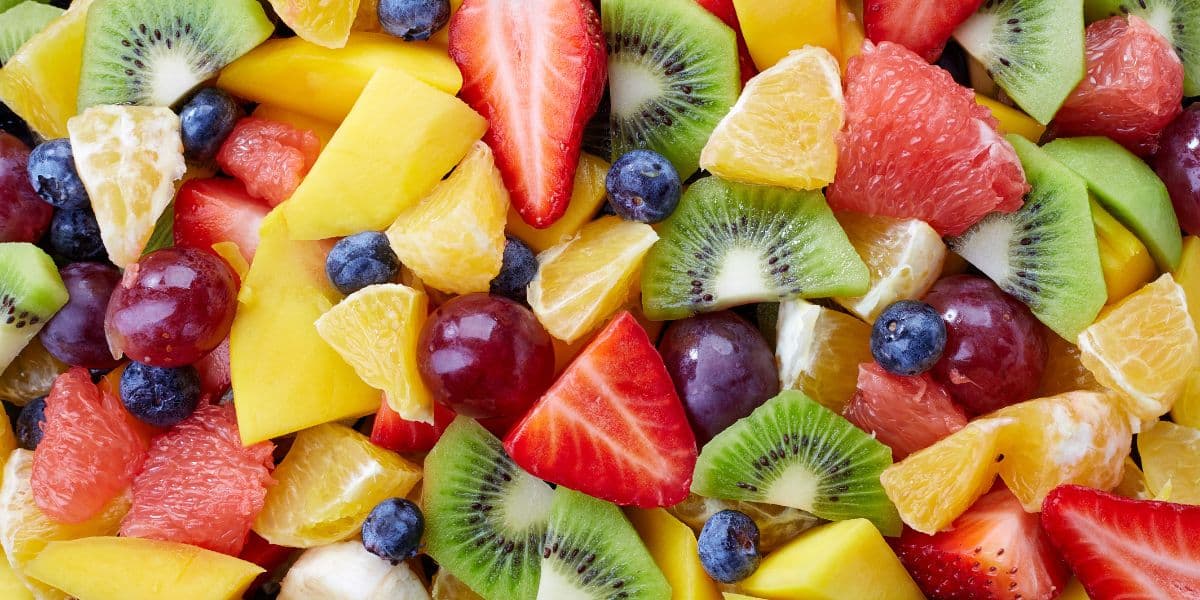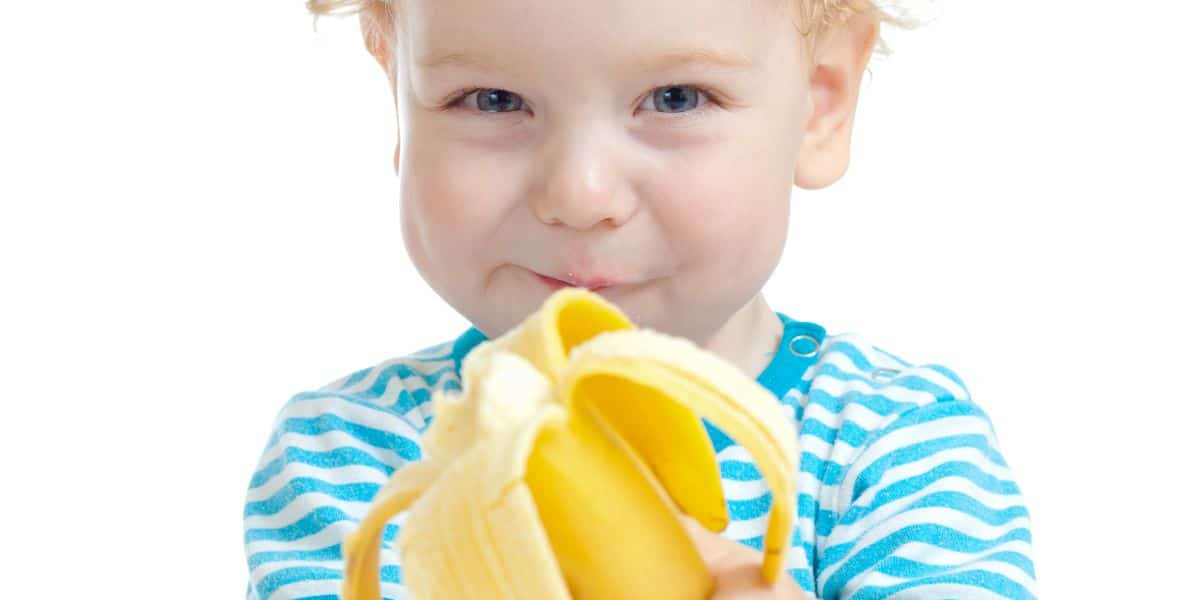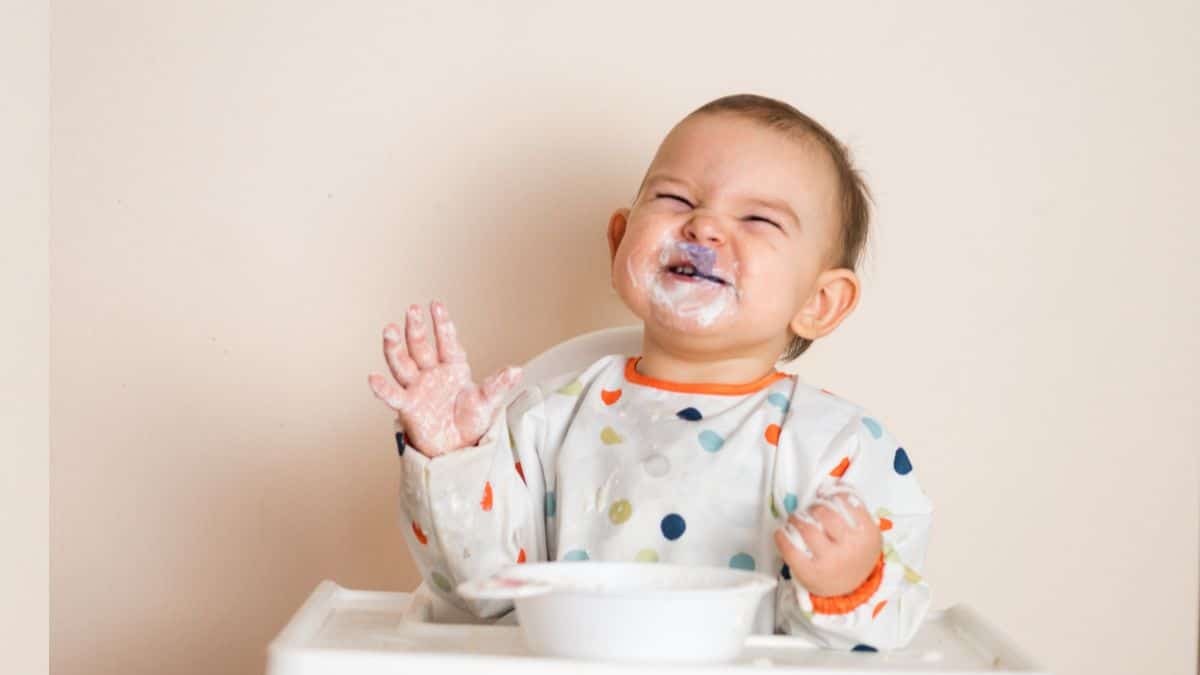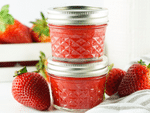It’s a particularly stressful time for mothers when they have to start thinking about the next big milestone in their baby’s life – weaning. Up until now things have been hectic with sleepless nights, continuous nappy changes, colic, reflux, sterilizing bottles, worrying about weight gain and whether your breast milk is enough.
Just when you thought there was some normalcy and routine, here comes the weaning stage to turn everything upside down again! Once you decide to go down the baby led weaning stage, its importance to learn the dos and dont’s.
In this article we will be discussing which foods you should be avoiding as first foods for your baby’s initial weaning stage.
As an Amazon Associate, I earn from qualifying purchases. The links below may be affiliate links. Please read my disclosure policy for more information.
What Is Baby Led Weaning?

Baby Led Weaning, or BLW, as it’s sometimes referred to, is a specialized method of introducing solid foods to your baby. The conventional way is to blend and purée vegetables and fruits.
However, with baby led weaning, you offer your baby pieces of food on their food tray or their plate at the table expecting them to pick up the food using their own hands.
It is focused on the idea that your baby should decide how much they want to eat without being probed. BLW also encourages babies to play with food and get comfortable with the texture as well as the flavor.
Familiarizing themselves with food using their multiple senses – touching it, smelling it and seeing it before they take it up to their mouth, makes babies more comfortable with whatever is going in their mouth.
This encourages good long term eating habits and confident eaters. It is also known to prevent obesity by teaching and training babies to eat as much as they want and not over eat.
When Will My Baby Be Ready To Wean?
Health organizations around the world are unanimously agreed that in the first six months of your baby’s life they only need milk. Ideally breast milk, as that develops their immunity and gives your baby the best start to life and aids their development – the reward of which they reap well into their adulthood years.
However it’s not always possible to be able to exclusively breastfeed your baby in which case formula should be given exclusively until your baby is six months old. You will need to keep an eye out for some particular signs.
There are three signs to look out for:
- They are able to sit in a sitting position holding their head steady without support.
- They are able to swallow food instead of spit it straight out
- Their hand eye mouth co-ordination is good and they are able to pick up finger foods bring it up to their mouth using their fingers.
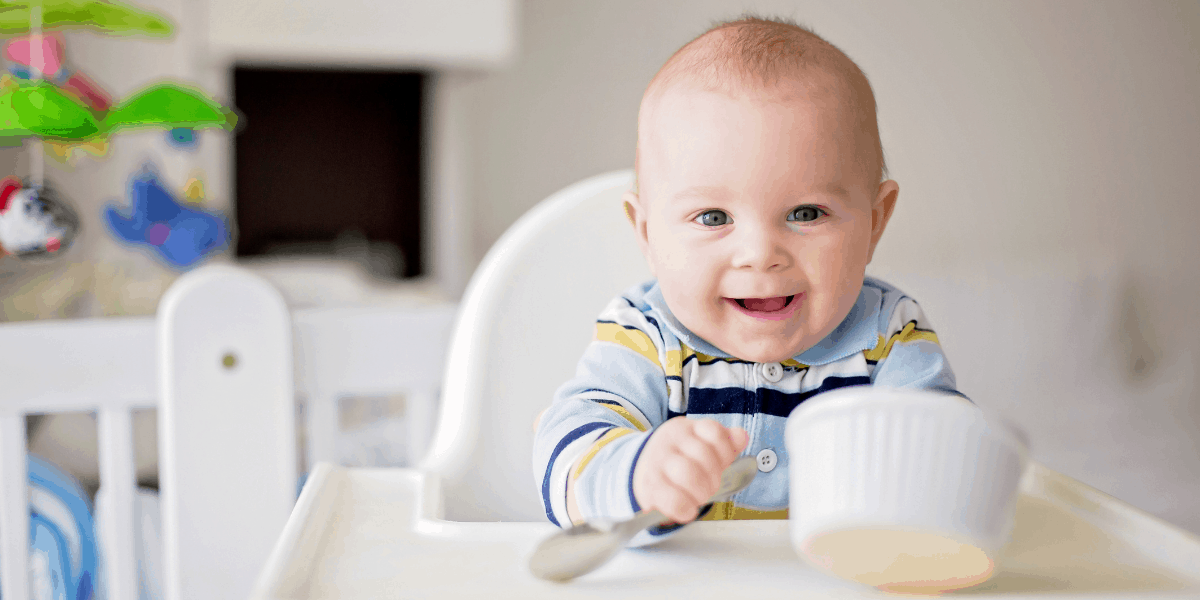
So Which Foods Should You Avoid?
It is important for someone to be supervising their baby during all weaning experiences. This is to make sure that a choking incident can be avoided in a timely manner.
Whilst soft steamed and roasted foods pose little threat when it comes to choking it’s always good to be cautious. Be mindful that gagging is different to choking.
Your baby may make gagging noises whilst eating their finger foods – this is normal and just means they are exercising their muscles in their throat. They are learning how to take out food they don’t want and how to swallow food. Make sure you learn the difference between gagging and choking before you start your weaning journey.
Some foods should be particularly avoided as they pose a risk to your baby. These are typically foods that are hard and small in size.
Uncooked or Hard Fruits
Fruits which are not softened first such as apples pose a choking risk as the baby will struggle to chew bits of it with their toothless gums.
Raw Vegetables
Since raw vegetables are in their natural hardened form, it would be difficult for the baby to bite and chew without their teeth.
This would be a potential choking hazard since if they got a chunk of the vegetable and swallowed it, being unable to mash it with their gums, it can get stuck in their throat.
Whole Seeds And Nuts
Babies typically develop their pincer grips at around the age of 9-10 months. However, if you do offer them nuts, seeds and small raisins – they pose a serious choking hazard.
Due to the lack of teeth in their mouths, they are unable to chew the seeds and nuts to the point it is safe for them to swallow.
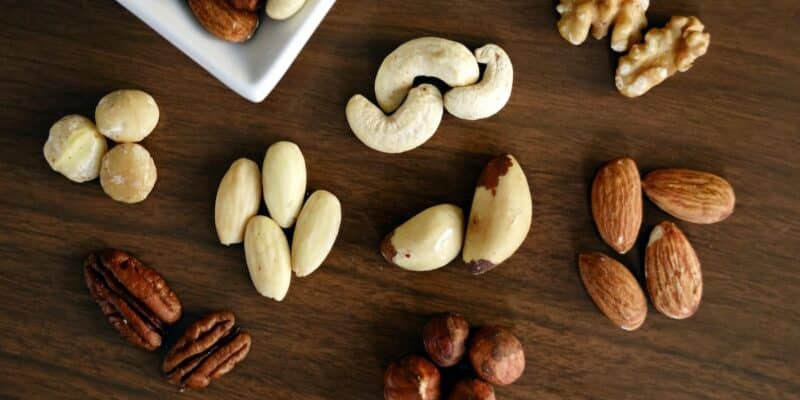
Whole Grapes / Blueberries / Pomegranates
Beware of offering whole grapes and blueberries, pomegranates during the initial stages of weaning. Your baby will not know how to sufficiently squash it in their mouth and may attempt to swallow the fruits whole.
In fact grapes are one of the forbidden fruits in lunch boxes for children up to the age of 10 due to its choking hazard even to older children.
If you do wish to offer these fruits to your baby – then check out the fruit feeder weaning dummies that are designed for fruits that could pose a choking hazard.
Other foods that should be avoided before the age of one is:
- cows milk
- honey
- sugar
- salt
Avoid adding salt to your baby’s food. They do not require it before the age of 1 and if introduced sooner it can develop poor heating habits as adults.
Potato Fried French Fries
Whilst it may be tempting to buy fries from outside – since they are easy to grip and eat for babies it should be avoided as much as possible. Not only do potato fries contain high levels of sodium, they are also deep fried.
This means they are no longer able to provide your baby with nutritious benefit the same way baked potato wedges or fries at home are. Fiber is an important part of their diet and potatoes contain high levels when cooked correctly.
Processed Foods
Sausages, bacon and chicken nuggets are other popular foods offered to babies as finger foods. However, not only are they high in their salt content level but they do not provide nutritional benefit to your baby.
They are also foods which encourage poor eating habits in children leading to obesity and lack of minerals and nutrients.

Soft Cheese
Soft cheese may contain a bacteria called listeria which could cause food poisoning in your baby. These include: Brie, chèvre, Camembert, Roquefort and unpasteurized cheeses.
These should be avoided as they can make your baby seriously sick.
Certain Types of Fish
Raw shellfish can increase the chances of food poisoning and therefore should be avoided.
Swordfish, shark, marlin contain high levels of mercury which are unsafe for your baby’s developing brain.
Some Important Tips To Remember
In the beginning it is advisable to introduce one food once a day as to avoid overwhelming your baby. If your baby shows signs of fussiness or refusal to eat or turns their head away then take the food away and offer it again at a later time.
Gagging is normal and different to choking. Know the difference before you start weaning. Gagging is normal and part of a natural reflex all babies have in order to get used to the swallowing motion.
Invest in a high chair that has a tray or that can be comfortably pushed right up against the dining table so your baby has a flat surface from which they can easily pick up and grasp foods.
Do remember to offer water with any solids you are introducing into your baby’s diet as this will prevent constipation. It’s good to keep a sippy cup or an open cup like the doidy cup next to your baby as they wean.
Offer the same food for three days before you offer them something new. This is so they get used to and comfortable to one type of flavor, texture and smell before moving on to a new type of food.
Cut the foods so they are large enough for you baby to grip with their fingers and take up to their mouth. It’s need to be large enough so the baby can’t put the whole piece in their mouth – a choking hazard!
As discussed in this article, it’s important to make the right decisions when introducing new flavors and textures to your baby’s food palette. Your baby’s relationship with food depends on these crucial first few weeks of weaning and the foods that you offer.
Remember to be positive and not to force your baby to finish a food that’s been placed in front of them. If there’s something they don’t like, simply take it away and try again after a few days or weeks.
Make the most of this beautiful milestone in your baby’s life! This special weaning stage won’t ever come back!
